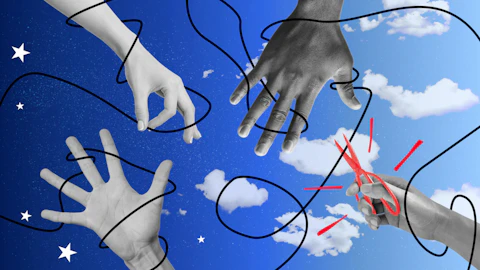I don’t harbor fantasies of being free myself. A free world for Black people must be created from scratch and, even in a best-case scenario, there will be no place for me once that bitter and bloody work is done.
Read the rest of COURIER’s What Is Freedom series here.
As a Black prepper, I prepare for catastrophe, be that financial collapse, natural disaster, global pandemic, or any number of other scenarios. I won’t pretend I don’t see frightening circumstances on the horizon. The constant, however, is the threat of racial violence, even in the midst of life-and-death struggle.
When I contemplate freedom, the idea is inextricably linked to adversity—mostly man-made, mostly a mix of white supremacy, capitalism, and violence. Freedom for Black people, it seems, cannot come without danger.
In the midst of the Movement for Black Lives, I’m watching calamity hit families on a daily basis as the forces of white supremacy (police, vigilantes, politicians) align. Every protester gassed or shot is a small apocalypse. Every time a person seeking freedom is arrested or murdered, a community faces its own existential threat, contained, but no less devastating.
Freedom, to me, means the ability to fully express oneself, to explore one’s talents and to apply those talents where they will facilitate the same for others. Freedom is the ability to create the world around oneself and not have one’s story dictated by another.
Black freedom shouldn’t be a question and definitely shouldn’t be left to the whims of a racist power structure. Our inalienable and fundamental right to self-determination has been consistently negated.
As a Black prepper, I prepare not only for calamity, but also to fight for my freedom. To do so, I draw on my community, history, and knowledge. I believe in the philosophy of Ubuntu: “I Am Because We Are.” I am part of a community, and I am only as strong as my community.
I also practice Sankofa, an African word from Akan people of Ghana, which translates to “Go Back and Fetch It.”
I go back to Wilmington in 1898 and fetch that history of murder and destruction simply because Black people tried to exercise their freedom.
I go back to Tulsa in 1921 when Blacks created a thriving financial culture, only to have whites burn, bomb, torture, and murder them.
I go back to the Danziger Bridge in 2005 after Hurricane Katrina, when Black people searching for safety were shot and killed by police.
I don’t harbor fantasies of being free myself. A free world for Black people must be created from scratch and, even in a best-case scenario, there will be no place for me once that bitter and bloody work is done. My vision is one of my children and their children being able to determine their own paths without the stifling, and often deadly, interference of racism.
Freedom doesn’t mean a world without calamity. Struggle is a necessary, and in many ways beneficial, part of life. But a free world would be one in which struggle is not compounded by the continual threat of violence merely because of the color of one’s skin.
I am determined to see my children fully free, whether here or elsewhere, whether through peaceful or disruptive means. I am determined to hand them a world befitting their grace, where they can live without fear.





